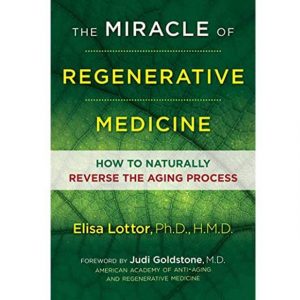Estrogen
There is no single hormone called estrogen. Estrogen is actually a group name for many subtypes. The 3 main subtypes are known as Estrone (E1), Estradiol (E2), and Estriol (E3). Each has unique functions and together they impact over 400 functions in the body.
Estrone (E1), the primary estrogen produced after menopause, is made in the ovaries, adrenal glands and fat cells. High levels may increase the risk of breast and endometrial cancer and blood clots.
Estradiol (E2) is the strongest form of estrogen and present in the highest levels in premenopausal women. High, unbalanced levels of estradiol may increase the risk of breast, uterine, or prostate cancer. Estradiol is often prescribed after menopause to maintain skeletal health and may reduce the risk of cardiovascular disease.
Estriol (E3)is the most abundant, but weakest, form of estrogen. It is mainly secreted by the placenta during pregnancy. Estriol is a protective estrogen which does not stimulate the uterine lining, and does not increase the risk of breast cancer or blood clots. In fact, it is used in Europe to treat breast cancer.
Estrogen (referring to the group of estrogens together) keeps the uterus toned and flexible, increases HDL (the good cholesterol), preserves the elasticity and moisture of the skin, dilates blood vessels, prevents plaque formation in blood vessel walls, and slows down the rate of bone breakdown. In addition, estrogen boosts the synthesis of neurotransmitters (brain chemicals) that affect sleep, mood, memory, libido, and cognitive factors, such as learning and attention span. Estrogen helps skin maintain a youthful plump appearance by increasing the synthesis of collagen.
Estrogen deficiency results in increased inflammation and degeneration of the body. This may be the mechanism behind osteoporosis, senility, heart disease, stroke, loss of muscle mass, and depression seen in estrogen-deficient women. Estrogen deficiency causes many of the symptoms associated with menopause including hot flashes, night sweats, vaginal thinning and dryness, urinary leakage and urinary tract infections, foggy thinking, palpitations, and thinning skin. Restoring declining estrogen levels with bioidentical estrogens may be helpful in relieving many of these symptoms. It may also help reduce the incidence of heart disease, osteoporosis, Alzheimer’s disease and memory disorders frequently seen in menopausal women.
Contact Us Online
Our Office
— Henry
Dr. Goldstone and her staff are great. I went to her for weight loss, with the Medical Weight Loss diet, I lost the weight and have kept it off. I also see Dr. Goldstone for hormone replacement therapy. I feel and look better than I have ever, all with the help of Dr. Goldstone and her…
Get In Touch With Us


